#Association of Washington Business
Text
WA Senate passes bill to bar hiring discrimination for cannabis use
BY CLAIRE WITHYCOMBE
Washington employers would be prohibited from refusing to hire a potential worker solely because of a drug test showing they had used cannabis under a bill that passed the state Senate on Wednesday.
Washington voters approved recreational marijuana in 2012 through Initiative 502. More than a decade later, though, as more states have moved to legalize the drug, Washington employers can still screen out applicants who use cannabis.
If Senate Bill 5123 becomes law, Washington would join several other states that have enacted laws shielding employees from workplace penalties for off-duty cannabis use. The bill passed the state Senate on a 28-21 vote Wednesday, sending it to the House for further consideration.
In 2019, Nevada became the first state to stop employers from rejecting an applicant because of a drug test showing cannabis use. Last year, California Gov. Gavin Newsom signed into law a bill barring discrimination in hiring, firing and other conditions of employment if a worker uses cannabis while off duty.
The Washington bill’s sponsor, Sen. Karen Keiser, D-Des Moines, introduced a similar proposal last year, but it didn’t get to the floor for a vote. Washington’s bill only covers drug tests before hiring, Keiser said. An employer could still test you for cannabis once you have a job, and could still make a hiring decision based on a drug test that doesn’t include cannabis.
“If your employer wants to test you every week after you’re hired, they’re still able to do that,” Keiser said. “This is simply opening the front door of getting into a job. Because too many people who see that they have to take a drug test to even apply, don’t even apply.”
Certain jobs are excluded from the bill, including in the airline and aerospace industries and those requiring a federal background investigation or security clearance. Employers could still screen workers for cannabis after an accident or if they suspect impairment on the job.
Thanks to an amendment from Sen. Curtis King, R-Yakima, the bill also excludes professions where impairment on the job means “substantial risk of death.”
A central challenge in regulating cannabis use in the workplace is that a test that measures impairment from the drug is not yet available. That poses a problem especially for workers and employers who are subject to federal regulations, including through contracts with the federal government or because workers must have commercial driver’s licenses.
Burl Bryson, executive director of The Cannabis Alliance, told lawmakers in a public hearing Jan. 10 that potential candidates can consume cannabis legally “and still test positive for weeks later.”
“If the same approach were applied to alcohol, employers would refuse employment to anyone who enjoyed a beer or glass of wine on the weekend,” Bryson said.
“It simply doesn’t make sense to base an employment decision on that kind of unreliable outcome and test,” Keiser said on the Senate floor just before the vote Wednesday.
The bill had drawn some opposition from business lobbyists, who expressed worries about employers’ responsibility for safety problems in the workplace.
Bob Battles, general counsel and government affairs director for the Association of Washington Business, which has 7,000 members including major employers Boeing and Microsoft, said Wednesday the organization shifted to a more neutral position, citing changes clarifying that it covered only preemployment screening, as well as King’s amendment to exclude positions where impairment could be deadly.
#us politics#news#the Seattle times#Washington#2023#pre employment drug screenings#drug testing#cannabis#marijuana#discrimination#Washington senate#Washington house of representatives#Washington legislature#SB 5123#off-duty cannabis use#Karen Keiser#Curtis King#The Cannabis Alliance#Burl Bryson#Association of Washington Business#Bob Battles#hiring discrimination
15 notes
·
View notes
Text
DEMOCRATS HAVE TRIED MOST EVERYTHING TO GET TRUMP OUT OF POLITICS, GOVERNMENT, THE RACE FOR THE OFFICE OF PRESIDENT AND THE WHITE HOUSE.
They did not care if they destroyed Trump as a person, a US citizen, destroyed his business, his family and friends, his political associates, his children. Democrats used mainstream media (CNN, MSNBC, Washington Post, New York Times, countless magazines (Rolling Stone, The Atlantic, Vanity Fair and so on), social media (Twitter, Facebook, Instagram, to name a few) to shut down dissent, to shut down the Trump political wave and they did this for the Democrats. They corrupted our sources of information to further their agenda.
Think about this, hard. If Democrats will do this to someone who stood up to them and their agenda, think about what they are doing and will do to us US citizens.
Please Repost Every Single Time


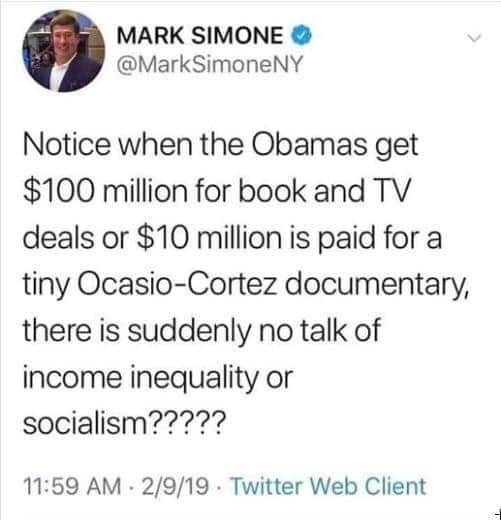

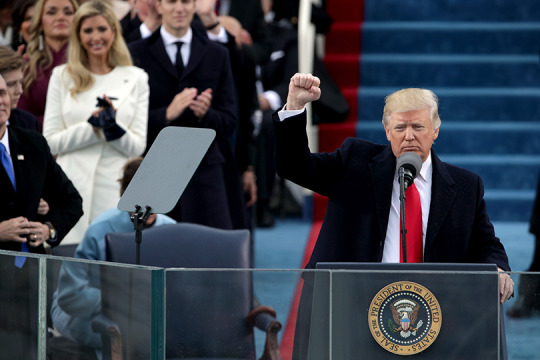









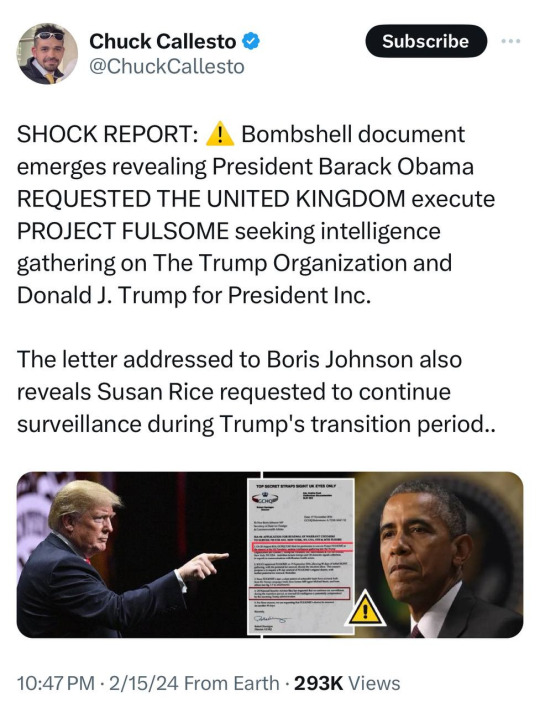









Trump has withstood the worst of the worst. No one, not one public person would have stood up to the continuing abuse of executive, judicial and government authority the way Trump has. Criminal indictments, baseless civil suits, changing laws to suit Democrats, judges favoring Democrats against Trump, the continued imprisonment of the J6 defendants.
How can any of us want a Democrat to represent us, the United States in the White House? How can any of us want a Democrat to represent us in Congress? If you do, you must be nuts, you must not care about anything but yourself. Destroying our way of life, our traditions and principles for this rising tide of "everything that is wrong with the world" is obscene.
It's now or never. Trump or America gets flushed. Simple as that.
Get rid of all Democrats. Local, State, Federal. Throw all of them out. Include the RINOS. Mitt Romney, Linsey Graham, McConnell, and the others.
Clean slate!!
Let us help ourselves. Let us help Trump get back into the White House. He will get the job done. He will make us proud. He has our backs. Let's have his.
243 notes
·
View notes
Text
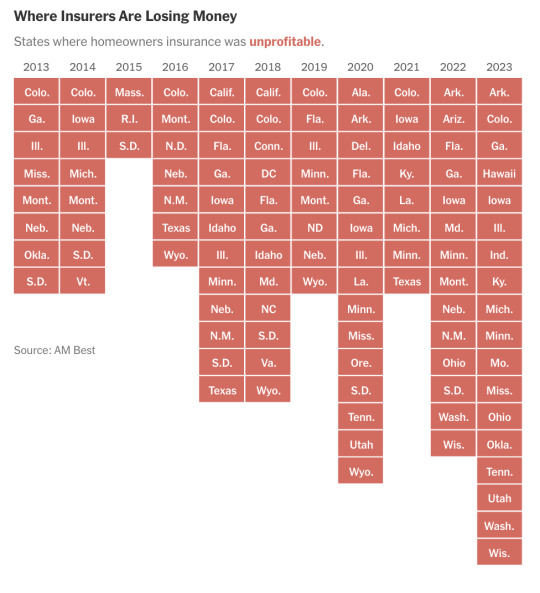
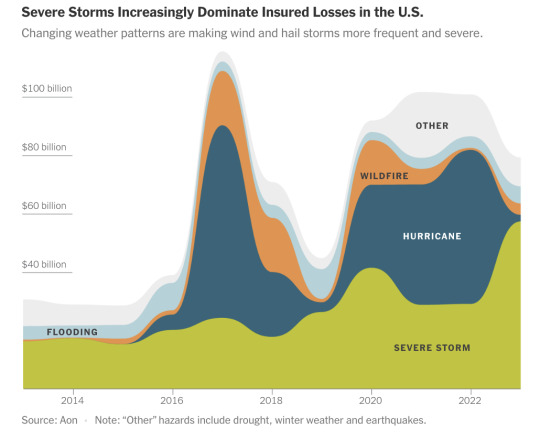
Excerpt from this story from the New York Times:
At first glance, Dave Langston’s predicament seems similar to headaches facing homeowners in coastal states vulnerable to catastrophic hurricanes: As disasters have become more frequent and severe, his insurance company has been losing money. Then, it canceled his coverage and left the state.
But Mr. Langston lives in Iowa.
Relatively consistent weather once made Iowa a good bet for insurance companies. But now, as a warming planet makes events like hail and wind storms worse, insurers are fleeing.
Mr. Langston spent months trying to find another company to insure the townhouses, on a quiet cul-de-sac at the edge of Cedar Rapids, that belong to members of his homeowners association. Without coverage, “if we were to have damage that hit all 17 units, we’re looking at bankruptcy for all of us,” he said.
The insurance turmoil caused by climate change — which had been concentrated in Florida, California and Louisiana — is fast becoming a contagion, spreading to states like Iowa, Arkansas, Ohio, Utah and Washington. Even in the Northeast, where homeowners insurance was still generally profitable last year, the trends are worsening.
In 2023, insurers lost money on homeowners coverage in 18 states, more than a third of the country, according to a New York Times analysis of newly available financial data. That’s up from 12 states five years ago, and eight states in 2013. The result is that insurance companies are raising premiums by as much as 50 percent or more, cutting back on coverage or leaving entire states altogether. Nationally, over the last decade, insurers paid out more in claims than they received in premiums, according to the ratings firm Moody’s, and those losses are increasing.
The growing tumult is affecting people whose homes have never been damaged and who have dutifully paid their premiums, year after year. Cancellation notices have left them scrambling to find coverage to protect what is often their single biggest investment. As a last resort, many are ending up in high-risk insurance pools created by states that are backed by the public and offer less coverage than standard policies. By and large, state regulators lack strategies to restore stability to the market.
Insurers are still turning a profit from other lines of business, like commercial and life insurance policies. But many are dropping homeowners coverage because of losses.
Tracking the shifting insurance market is complicated by the fact it is not regulated by the federal government; attempts by the Treasury Department to simply gather data have been rebuffed by some state regulators.
The turmoil in insurance markets is a flashing red light for an American economy that is built on real property. Without insurance, banks won’t issue a mortgage; without a mortgage, most people can’t buy a home. With fewer buyers, real estate values are likely to decline, along with property tax revenues, leaving communities with less money for schools, police and other basic services.
And without sufficient insurance, people struggle to rebuild after disasters. Last year, storms, wildfires and other disasters pushed 2.5 million American adults out of their homes, according to census data, including at least 830,000 people who were displaced for six months or longer.
121 notes
·
View notes
Text
Jeff Duncan

Physique: Average Build
Height: 6′ 1″ (1.85 m)
Jeffrey Darren Duncan (born January 7, 1966) is an American politician who has been the United States Representative for South Carolina’s 3rd congressional district since 2011. Duncan, a Republican, previously served in the South Carolina House of Representatives from 2002 to 2010 when he retired to run for the U.S. House of Representatives. On January 17, 2024, Duncan announced that he would not run for re-election.





Well, all I can say is this man is almost perfect for me. Why not perfect? First, his choice in shoe wear. Not that their bad, just looks like he had them for years. Come on Jeff, your a US congressman. Time for some new shoes. That being said, I can over look the shoes. Second and most important, he’s not naked and in my bed with my jizz all over him. What? Then he’d be perfect.


Born in Greenville, South Carolina, Duncan graduated from Clemson University with a BA in political science in 1988 and was a member of the school's football team. After graduation, Duncan served as branch manager and an assistant vice president during his seven years working in community banking. Later, he started and ran his own small business, J. Duncan & Associates, a South Carolina-based, family-owned real estate marketing firm until his election to Congress in 2010.



Lets see, he’s married… Wait… his wife Melody, with who he shares three sons with, recently filed to divorce Jeffy, alleging he carried out multiple affairs during his 34-year marriage. Including one with a lobbyist that Melody believes Duncan is currently living with in Washington D.C.. SCANDALOUS. So this is the reason he's retiring.
Well… if he was sleeping with me, he maybe able to salvage his political career. Hey, the "I recently found out I was gay" defense can work. lol

125 notes
·
View notes
Text
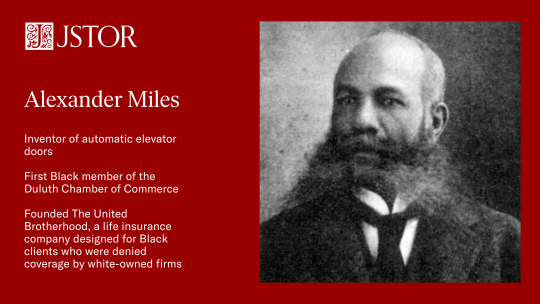
Alexander Miles, a prominent African-American inventor of the late 19th century, is best known for his groundbreaking invention - elevator doors that could open and close automatically. This invention transformed the safety of elevator rides, with automatic doors now considered a standard feature in modern elevators.
Born on May 18, 1838, in Circleville, Ohio, Alexander Miles was the son of Michael and Mary Miles. As a young adult, he relocated to Waukesha, Wisconsin, where he worked as a barber throughout the 1860s. It was while living in Winona, Minnesota, in 1870, that he met Candace J. Dunlap from New York City, who later became his wife. After the birth of their daughter, Grace, the family moved to Duluth, Minnesota.
In Duluth, Miles enjoyed significant success as a barber, setting up a barbershop in the four-story St. Louis Hotel. He smartly invested his savings into purchasing a real estate office. His business acumen led to him becoming the first Black member of the Duluth Chamber of Commerce. In 1884, Miles constructed a three-story brownstone building in an area that later came to be known as the “Miles Block.”
While taking elevator rides in his buildings, Miles noticed the dangerous risks associated with manually operated elevator shaft doors being left open. Determined to solve this problem, he invented a mechanism that allowed elevator shaft doors to operate at the correct times. The mechanism, which involved a flexible belt attached to the elevator cage touching drums positioned along the elevator shaft, automated the elevator doors through a series of levers and rollers. On October 11, 1887, Alexander Miles was granted a patent for his life-saving invention (U.S. Patent 371,207).
In 1899, Miles and his family moved to Chicago, Illinois, where he started The United Brotherhood, a life insurance company for Black customers who were denied coverage by White-owned firms. Eventually, Miles relocated to Seattle, Washington. Prior to his death on May 7, 1918, he was considered the wealthiest Black person in the Pacific Northwest area, largely due to the income from his invention. In recognition of his contributions, Alexander Miles was inducted into the National Inventors Hall of Fame in 2007.
Read more about Alexander Miles here.
228 notes
·
View notes
Text
this miniature portrait of hamilton, apparently done on january 11 1773 (16th birthday present, if we're going by 1757, perhaps? from who?) makes me laugh because he looks so young. in just 2-3 years he would join the new york militia, and then fight in the continental army and meet george washington. you know that anecdote about how a soldier saw hamilton's company and went "wtf is this skinny kid doing here" only to learn that he was the captain? that makes a lot more sense now.
he came to america in 1772, so this means he would've looked even younger when he was actually on st. croix, bossing everyone around at cruger's firm. can you imagine being a sea captain or business associate and getting reprimanded by an even smaller version of this dork? jesus christ it must have been a nightmare to work with him.

#look at that haircut#he got the short bang ponytail combo#i want to know if hamilton kept this miniature himself#because if so i can imagine elizabeth teasing him about it#their version of looking at highschool yearbooks actually#since betsey showed him her drawings#alexander hamilton#historical hamilton#amrev
112 notes
·
View notes
Text
The number of people in the Republican’s [Trump] orbit who’ve been convicted of crimes in recent years is so great, The Washington Post once described it as the “remarkable universe of criminality“ surrounding the former president.
That was five years ago. It’s even more remarkable now:
Donald Trump was charged, convicted, and is awaiting sentencing.
Trump’s former campaign chairman, Paul Manafort, was charged, convicted, and sentenced to prison.
Trump’s former campaign vice chairman, Rick Gates, was charged, convicted, and sentenced to prison.
Trump’s former personal lawyer, Michael Cohen, was charged, convicted, and sentenced to prison.
Trump’s former adviser and former campaign aide, Roger Stone, was charged, convicted, and sentenced to prison.
Trump’s former adviser and former White House aide Peter Navarro, was charged, convicted, and is currently in prison.
Trump’s former campaign adviser, George Papadopoulos, was charged, convicted, and sentenced to prison.
The Trump Organization’s former CFO, Allen Weisselberg, was charged, convicted, and sentenced to prison.
Trump’s former White House national security advisor, Michael Flynn, was charged and convicted.
Trump’s former chief strategist, Steve Bannon, was charged with wire fraud and money laundering, in addition to a conviction in a contempt case similar to Navarro’s. He’s currently awaiting sentencing.
Though he was later acquitted at trial, Trump’s former inaugural committee chair, Tom Barrack, was charged with illegally lobbying Trump on behalf of a foreign government. (Elliot Broidy was the vice chair of Trump’s inaugural committee, and he found himself at the center of multiple controversies, and also pled guilty to federal charges related to illegal lobbying.)
Two lawyers associated with Trump’s post-defeat efforts, Kenneth Chesebro and Sidney Powell, have pleaded guilty to election-related crimes.
And did I mention that former president’s business was itself found guilty of tax fraud? Because it was.
This does not include the fact that a jury held Trump liable for sexual abuse in a civil case.
By Steve Benen
73 notes
·
View notes
Text
Summer COVID surge shows we may have to return to 2020 pandemic measures - Published Aug 29, 2024
As summer 2024 draws to a close, the U.S. finds itself once again grappling with a surge in COVID-19 infections.
This wave has taken many people by surprise, particularly as the country has largely consigned the pandemic to the past. While public life has pretty much returned to pre-pandemic norms — something almost none of us would have believed in the summer of 2020 — the virus itself has not.
Mutations of the virus continue to occur, and new variants are emerging, posing ongoing challenges to public health and safety. As we look ahead to the remainder of 2024 and into early 2025, we need to take stock of where we are, understand the factors driving this resurgence and better anticipate how the pandemic might evolve.
The recent surge in COVID-19 cases has disrupted summer travel plans, overwhelmed healthcare facilities in certain areas, and left many Americans dealing with the familiar symptoms of fever, cough and fatigue. The summer months, typically associated with lower respiratory virus activity, have instead seen a significant uptick in COVID-19 infections. Several factors contribute to this unexpected surge.
One factor is the high transmissibility of newer variants. The virus has continued to mutate, with certain variants displaying enhanced ability to spread, even among populations with high vaccination rates. While vaccines remain effective at preventing severe disease and death, breakthrough infections are becoming more common, especially as immunity from earlier vaccinations wanes.
Second, the widespread relaxation of public health measures has created an environment conducive to transmission. Mask mandates, social distancing guidelines and restrictions on large gatherings have all but disappeared. This return to normalcy, while massively psychologically and economically beneficial, has provided the virus with ample opportunities to spread.
Finally, the pervasive sense of pandemic fatigue has led to a serious decline in vigilance. Many people, weary of the pandemic’s disruptions to their lives, have become markedly less cautious. This complacency, coupled with the underestimation of the virus’s ability to adapt, has allowed COVID-19 to regain a foothold.
The federal government’s response to the latest surge has been tepid at best. After years of intense focus on COVID-19, there is a palpable desire in Washington to move on. This has resulted in a fragmented approach, with responsibility for managing the current wave largely devolving to state and local governments. While some have reinstated certain precautions, others have continued with business as usual, leading to inconsistent messaging and outcomes.
Moreover, the federal government’s decision to end the public health emergency earlier this year has had unintended consequences. The end of the emergency declaration led to a reduction in federal funding for testing, contact tracing, and vaccination efforts, just as these tools are once again needed. The lack of a coordinated national strategy has hampered efforts to control the surge and has left healthcare providers scrambling to manage increased caseloads with fewer resources.
Looking ahead, the trajectory of the pandemic remains uncertain, but there are several key trends and scenarios to consider.
The virus is likely to continue mutating, with new variants emerging that could potentially evade immunity from previous infections or vaccinations. This means that COVID-19 will remain a moving target, requiring ongoing surveillance and adaptation of public health strategies. The development of updated vaccines and treatments will be critical in staying ahead of the virus, but the speed at which these can be rolled out will determine their effectiveness.
We can and should also expect periodic surges in COVID-19 cases, particularly in the fall and winter months, when respiratory viruses typically thrive. These surges may not reach the levels seen during the height of the pandemic, but they could still cause significant disruption, particularly in areas with low vaccination rates or limited healthcare capacity. Localized outbreaks, driven by specific variants or super-spreader events, will likely become regular features of the landscape.
The healthcare system, already strained from years of dealing with the pandemic, is also going to face additional pressure if the current surge continues into the fall and winter. Hospitals and clinics will need to balance the demands of COVID-19 patients with the resumption of regular medical care that had been postponed during the pandemic’s earlier phases. This balancing act could lead to increased wait times, resource shortages and burnout among healthcare workers.
And we can’t underestimate how public fatigue with COVID-19 precautions will grow, making it more difficult to reimpose restrictions or encourage preventive behaviors. This resistance could be particularly strong in regions that have experienced relatively low case numbers or where political leaders have downplayed the severity of the virus. Overcoming this fatigue will require clear and consistent communication from public health officials, as well as community-level engagement to reinforce the importance of ongoing vigilance.
We are also making a big mistake if we ignore the economic and social implications of continued COVID-19. The virus’s persistence may lead to renewed disruptions in the travel industry, supply chains and workforce participation. Along with this, the psychological toll of a prolonged pandemic, with the associated uncertainty and anxiety, could have lasting effects on mental health and societal cohesion. Policymakers will need to address these challenges proactively, with a focus on resilience and support for affected populations.
So where do we realistically go from here, given that it is clear that COVD-19 is far from over? While much progress has been made in terms of vaccination and treatment, the current surge is a stark reminder that complacency is not an option. The road ahead will require a renewed commitment to public health, both from government leaders and from individuals.
We all need to prepare for not only the possibility of continued disruptions but for another new normal that might be a little closer to 2020 than how we’ve recently been living. That means preparing for future waves and the long-term implications of a world in which COVID-19 remains a persistent, if manageable, threat.
Aron Solomon is the chief strategy officer for Amplify. He has taught entrepreneurship at McGill University and the University of Pennsylvania.
#covid#mask up#covid 19#pandemic#wear a mask#coronavirus#sars cov 2#public health#still coviding#wear a respirator
40 notes
·
View notes
Text
Ghost Basic Info

Legal Name: Simon Riley
Call Sign: Ghost
D.O.B: 21, November, [REDACTED]
Rank: Lieutenant
Nationality: British
Race: White
Height: 193cm, 6’4
Eyes: Brown
Hair color: Blonde
Pronouns: He/Him
Notable features: Wears a black balaclava with a white skull marking.
Associations: SAS TF-141

Joined the military in 2001. Left from 2003-2005 to help his brother, Tommy, overcome a drug addiction. Tommy married a woman named Beth and had a son, named Joseph Jacob Riley, by June 2006.
Riley had his team's commanding officer, Major Vernon, betray them to the enemy, Manuel Roba. Riley and his teammates were then captured and tortured for months. Vernon was unable to break Riley. Roba had Vernon killed for his failure and later buried Riley alive in Vernon's casket, leaving him to die. Using Vernon's jawbone, Riley was able to break through the casket, dig his way out, and then make it back across the border to Texas.
After four months, his injuries had healed but he still suffered from temper-management issues, which stopped him from returning to active duty. He met up with Kevin Sparks and Marcus Washington, two of his teammates that had been captured with him. He discovered that Roba had broken them into joining the enemy. Riley later attempted to kill Sparks, but was forced to flee when Washington arrived. When he returned home he found that Washington had killed his mother, brother Tommy, sister-in-law Beth, and nephew Joseph. Riley then killed Sparks and Washington.
Riley returned to Mexico, determined to take down Roba. Riley ambushed Roba's right-hand man, Gilberto, and tortured Roba's location out of him. Infiltrating at Roba's compound, he methodically eliminated Roba's guards and, after a prolonged gunfight, killed Roba. He gathered all the intel on Roba's contacts and business dealings and was then approached by General Shepherd who recruited him into Task Force 141.
(As always this is my personal canon, with influence from canon)

PekoeHoneynCream's Masterlist
33 notes
·
View notes
Text
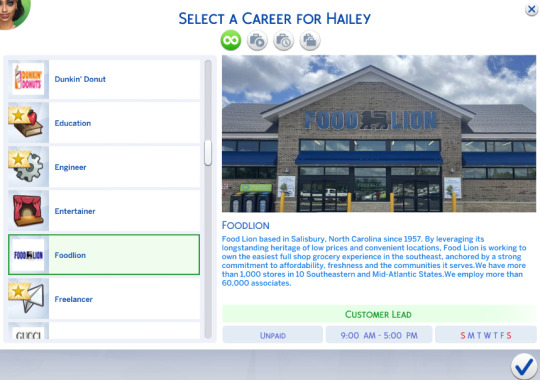
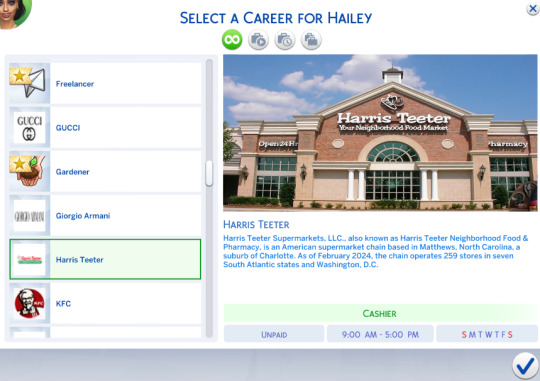



🦄The Sims 4🦄
🍉Grocery Store Bundle🍍
💕EARLY RELEASE💕
Foodlion
Food Lion based in Salisbury, North Carolina since 1957. By leveraging its longstanding heritage of low prices and convenient locations, Food Lion is working to own the easiest full shop grocery experience in the southeast, anchored by a strong commitment to affordability, freshness and the communities it serves.We have more than 1,000 stores in 10 Southeastern and Mid-Atlantic States.We employ more than 60,000 associates.
Customer Lead
Customer Service Leader
Food Lion To Go Associate
Center Store Lead
Sales Associate Cashier
Frozen Food Dairy Associate
Cake Decorator
Deli Bakery Sales Associate
Allow Teens
Allow Young Adults
Allow Adults
Allow Elders
Harris Teeter
Harris Teeter Supermarkets, LLC., also known as Harris Teeter Neighborhood Food & Pharmacy, is an American supermarket chain based in Matthews, North Carolina, a suburb of Charlotte. As of February 2024, the chain operates 259 stores in seven South Atlantic states and Washington, D.C.
Cashier
Assistant Dairy/Frozen Manager
Deli Bakery Clerk
Meat Clerk
Grocery Manager
Produce Clerk
Personal Shopper
Allow Teens
Allow Young Adults
Allow Adults
Allow Elders
Lowes Foods
Founded in 1954, Lowes Foods employs approximately 9,000 people and operates nearly 100 full-service supermarkets in North Carolina, South Carolina and Virginia. Locally owned and operated, Lowes Foods is truly a homegrown company committed to bringing community back to the table, by providing customers with the freshest and most innovative local products from local suppliers. The company maintains a strong focus on exceptional attention to our guests, with services like Lowes Foods-To-Go personal shopping and gas rewards discounts. To learn more, visit lowesfoods.com or follow Lowes Foods on Facebook or Twitter. Lowes Foods, LLC is a wholly owned subsidiary of Alex Lee, Inc.
Grocery Stocker
Personal Shopper
Deli Clerk
Bakery Clerk
Dairy/Frozen Stocker
Cake Decorator
Allow Teens
Allow Young Adults
Allow Adults
Allow Elders
Sam's Club
Sam’s Club is home to more than 100,000 associates in more than 660 locations all working together to provide great service and value to our members. By providing innovative products, a shopping experience infused with digital solutions such as Scan & Go and Club Pickup and support to the communities we serve, we truly differentiate our company in the marketplace. The constant pursuit to surprising and delight our members drives our business every day.
Backroom Associate
Cafe Associate
Team Lead
Personal Shopper
Merchandise and Stocking Associate
Freezer, Cooler and Deli Stocker Associate
Allow Teens
Allow Young Adults
Allow Adults
Allow Elders
Walmart
Walmart store managers are the best leaders in retail, and we’re investing in them – simplifying their pay structure and redesigning their bonus program, giving them the opportunity to earn an annual bonus up to 200% of their base salary.
Cashier & Front End Services
Food & Grocery
General Merchandise
Online Orderfilling & Delivery
Stocking & Unloading
Auto Care Center
Fuel Station
Health & Wellness
Allow Teens
Allow Young Adults
Allow Adults
Allow Elders
DOWNLOAD NOW
#gaming#the sims 4#the sims university#the sims 4 cc#pink#celebrities#nicki minaj#victoria secret#the sims 4 mod#sims 4 career#foodie#retail#fyp#fypシ#fypage#tumblr fyp#text post#nicki is coming#nickelodeon#female rappers#miley cyrus#kanye west#new album#latto#latto777#latte#cardi b#megan thee stallion
79 notes
·
View notes
Video
youtube
How the Corporate Takeover of American Politics Began
The corporate takeover of American politics started with a man and a memo you've probably never heard of.
In 1971, the U.S. Chamber of Commerce asked Lewis Powell, a corporate attorney who would go on to become a Supreme Court justice, to draft a memo on the state of the country.
Powell’s memo argued that the American economic system was “under broad attack” from consumer, labor, and environmental groups.
In reality, these groups were doing nothing more than enforcing the implicit social contract that had emerged at the end of the Second World War. They wanted to ensure corporations were responsive to all their stakeholders — workers, consumers, and the environment — not just their shareholders.
But Powell and the Chamber saw it differently. In his memo, Powell urged businesses to mobilize for political combat, and stressed that the critical ingredients for success were joint organizing and funding.
The Chamber distributed the memo to leading CEOs, large businesses, and trade associations — hoping to persuade them that Big Business could dominate American politics in ways not seen since the Gilded Age.
It worked.
The Chamber’s call for a business crusade birthed a new corporate-political industry practically overnight. Tens of thousands of corporate lobbyists and political operatives descended on Washington and state capitals across the country.
I should know — I saw it happen with my own eyes.
In 1976, I worked at the Federal Trade Commission. Jimmy Carter had appointed consumer advocates to battle big corporations that for years had been deluding or injuring consumers.
Yet almost everything we initiated at the FTC was met by unexpectedly fierce political resistance from Congress. At one point, when we began examining advertising directed at children, Congress stopped funding the agency altogether, shutting it down for weeks.
I was dumbfounded. What had happened?
In three words, The Powell Memo.
Lobbyists and their allies in Congress, and eventually the Reagan administration, worked to defang agencies like the FTC — and to staff them with officials who would overlook corporate misbehavior.
Their influence led the FTC to stop seriously enforcing antitrust laws — among other things — allowing massive corporations to merge and concentrate their power even further.
Washington was transformed from a sleepy government town into a glittering center of corporate America — replete with elegant office buildings, fancy restaurants, and five-star hotels.
Meanwhile, Justice Lewis Powell used the Court to chip away at restrictions on corporate power in politics. His opinions in the 1970s and 80s laid the foundation for corporations to claim free speech rights in the form of financial contributions to political campaigns.
Put another way — without Lewis Powell, there would probably be no Citizens United — the case that threw out limits on corporate campaign spending as a violation of the “free speech” of corporations.
These actions have transformed our political system. Corporate money supports platoons of lawyers, often outgunning any state or federal attorneys who dare to stand in their way. Lobbying has become a $3.7 billion dollar industry.
Corporations regularly outspend labor unions and public interest groups during election years. And too many politicians in Washington represent the interests of corporations — not their constituents. As a result, corporate taxes have been cut, loopholes widened, and regulations gutted.
Corporate consolidation has also given companies unprecedented market power, allowing them to raise prices on everything from baby formula to gasoline. Their profits have jumped into the stratosphere — the highest in 70 years.
But despite the success of the Powell Memo, Big Business has not yet won. The people are beginning to fight back.
First, antitrust is making a comeback. Both at the Federal Trade Commission and the Justice Department we’re seeing a new willingness to take on corporate power.
Second, working people are standing up. Across the country workers are unionizing at a faster rate than we’ve seen in decades — including at some of the biggest corporations in the world — and they’re winning.
Third, campaign finance reform is within reach. Millions of Americans are intent on limiting corporate money in politics – and politicians are starting to listen.
All of these tell me that now is our best opportunity in decades to take on corporate power — at the ballot box, in the workplace, and in Washington.
Let’s get it done.
#youtube#videos#video#powell memo#corporations#wall street#finance#corruption#politics#lobbying#government
1K notes
·
View notes
Text
I did a short interview for an alumni spotlight on the CCA website. You can click through but I'll also just copy my answers below the cut.
Maia Kobabe (e/em/eir) is a nonbinary/queer/trans author and illustrator, a voracious reader, a k-pop fan, and a daydreamer. You can learn an astonishing number of intimate details about em in Gender Queer: A Memoir and in eir other short comics, published by The New Yorker, The Nib, The Washington Post and in many print anthologies. Gender Queer won a Stonewall Honor and an Alex Award from the American Library Association in 2020. It was also the most challenged book in the United States in 2021 and 2022.
Maia shares more about eir life as a full-time artist and activist, fighting to protect diverse literature and the freedom to access information.
1. What is your current practice/business?
I am a full time cartoonist. My job consists of days working at home writing and drawing mixed with days speaking out against book banning and censorship, and in support of the freedom to read, the freedom to teach, and the freedom to access information. I spend a lot of time talking with other authors, teachers, and librarians about protecting diverse and queer books from the current wave of conservative attacks. The first piece I drew for the comics journalism site The Nib was about the rise of fascism in the United States; my later writing about queer, trans, and nonbinary identities has led me into consistently political territory.
2. Why did you choose CCA?
I chose CCA because I was looking for a MFA Comics program, of which there are very few, and I wanted to stay in the Bay Area. Because I'm a local, I was able to meet the majority of the MFA Comics faculty before I applied and felt immediately welcomed into their community. The fact that a majority of my professors for the first year of the program were queer was a huge draw as well.
3. If you could share one piece of advice with current or future students, what would it be?
Every single person has a story only they could tell. No matter what media you are working in, do your best to tell the story which is uniquely yours. If you aren't ready to tell it yet, just keep making art until the time to share that story arrives. No time spent creating is ever wasted.
4. What's your secret to staying inspired and creative?
I realized fairly early in life that my very favorite way to spend the day was drawing while listening to music, a podcast, or an audiobook. I like making things! I would rather be making things than doing almost anything else. I created a life in which I can spend a lot of time creating things and even if I don't particularly know what I am making, I am happy.
5. What do you have coming up?
My second book, Breathe: Journeys to Healthy Binding, written with Dr Sarah Pietzmeier, is coming out in May 2024 from Dutton. It's a nonfiction comic about chest binding as an aspect of trans healthcare. I'm currently drawing my third book, Saachi's Stories, written with Lucky Srikumar; it's due out from Scholastic Graphix in 2026. I am also working on adapting Gender Queer: A Memoir into an audiobook.
53 notes
·
View notes
Text
Daniel Villarreal at LGBTQ Nation:
When Christian Nationalist Rep. Lauren Boebert (R-CO) visited George Washington University (GW) yesterday to complain about a pro-Palestinian encampment there, students repeatedly shouted “Beetlejuice!” at her. The jeer referenced the time she was kicked out of a theatre during a performance of Beetlejuice: The Musical after she was caught vaping, groping her date, and flipping off an usher — and it’s not the first time critics have used the incident to mock her.
Boebert toured the university’s Washington D.C. campus on Wednesday to view the encampment alongside other House Republicans, including Reps. Byron Donalds (FL), Anna Paulina Luna (FL), and James Comer (KY). Students from GW and other D.C. area colleges and universities established the encampment last week.
During the visit, Boebert tried to tear down a Palestinian flag hanging from a statue. She told others to remove the flag, because the statue is federal property. Addressing a group at GW, Boebert referred to the encampment, saying, “If [GW doesn’t] want to do something to address this? Well, then kiss your federal funding goodbye,” Business Insider reported.
During Boebert’s speech, students began yelling “Beetlejuice!” and sang “The Imperial March” from the science-fiction film series Star Wars, the University’s student newspaper, The GW Hatchet, reported. The films’ marching tune is associated with Darth Vader, a genocidal dictator.
Rep. Lauren Boebert (R-CO) went to George Washington University (GWU) on Wednesday with a few other Republican Congresspersons to oppose the Gaza Solidarity Encampments on campus.
While there, Boebert was there to antagonize the pro-Palestinian supporters, and students rightly shouted her down with "Free Palestine" and "Beetlejuice" chants. She later threatened to defund GWU.
#Lauren Boebert#George Washington University#GWU#Palestine#Free Palestine#Ceasefire NOW Protests#Gaza Solidarity Encampments#Byron Donalds#Anna Paulina Luna#James Comer#Campus Protests
35 notes
·
View notes
Text

Today In History
Alfred L. Cralle was a Black businessman and inventor, who invented the ice cream scooper, patent #576,395 on this date February 2, 1897.
Alfred L. Cralle was born in Kenbridge, Lunenburg County, Virginia just after the end of the American Civil War. He attended local schools and worked with his father in the carpentry trade as a young man, becoming interested in mechanics. Cralle went to Washington, D.C., and attended Wayland Seminary, one of several schools founded by the American Baptist Home Mission Society to help educate Blacks after the American Civil War.
He settled in Pittsburgh, Pennsylvania, where he first served as a drug store and hotel porter. Alfred noticed that servers at the hotel had trouble with ice cream sticking to serving spoons, and he developed an ice cream scoop.
The patented “Ice Cream Mold and Disher” was an ice cream scoop with a built-in scraper to allow for one-handed operation. Cralle’s functional design is in modern ice cream scoops. He later became a general manager for the Afro-American Financial, Accumulating, Merchandise, and Business Association.
CARTER™️ Magazine
49 notes
·
View notes
Text
TikTok went all out to defend itself in a court hearing last Monday, to block a law that could force TikTok to be sold or banned in the United States. That included using one surprising strategy: to bring other Chinese apps down with it.
Earlier this year, the Protecting Americans from Foreign Adversary Controlled Applications Act (PAFACA), which aims to prevent national security threats from apps like TikTok, took less than two months to pass both the House and the Senate, before it was swiftly signed by President Joe Biden in April. It caught almost everyone by surprise, including TikTok. The law requires TikTok to find a US buyer to take over its operation soon, or face being banned in the US. TikTok promptly sued the government over it.
At the Court of Appeals in Washington, DC, on September 16, Andrew Pincus, a partner at law firm Mayer Brown acting for TikTok, argued that the law unfairly targets the social media app for the speech on the platform and that it violates the First Amendment. Specifically, Pincus said the law exempts other Chinese apps that could have been doing worse on the concern of data security protection.
“There are very significant ecommerce sites based in China and other places that collect much more data than TikTok does. Very sensitive data,” Pincus said. At another point in the hearing, he narrowed down the targets to “two Chinese, two e-commerce sites that would certainly meet all of the other criteria in the law.”
Pincus did not name-drop the two sites in his statements, but a TikTok court filing from August 15 cited the privacy policies of Shein and Temu—two ecommerce companies linked to China—to make the same argument Pincus made. The filing also cited research from April 2023 on the data risks of these two companies, collated by the US–China Economic and Security Review Commission.
Shein and Temu came from China’s fiercely competitive ecommerce industry and were able to take over the world by storm by shipping low-cost apparels and goods globally. Each boasts tens of millions of customers around the world, and they are often compared to TikTok as the rare examples of Chinese tech companies that have truly succeeded in the US.
TikTok, however, claims there’s an exemption clause in the PAFACA Act that essentially protects Chinese companies like Shein and Temu but not TikTok. When defining what companies are covered, the Act has only one exclusion: companies and products “whose primary purpose is to allow users to post product reviews, business reviews, or travel information and reviews.”
To be fair, the clause that TikTok highlighted was a bewildering inclusion from the beginning. Even some lawmakers claimed they weren’t sure why it was necessary to put in place such an exception.
But TikTok is seizing this opportunity to argue that, because the clause would likely protect Shein, Temu, and similar ecommerce sites that also have significant presence in the US and collect a wealth of privacy data, the Act is narrowly tailored to punish TikTok. It went as far as to claim that the clause shows Congress favors topics like products, business, and travel instead of politics, religion, and entertainment, making it a First Amendment infringement. The DOJ has denied this characterization in written court briefs.
It is a valid legal strategy, Alan Rozenshtein, an associate professor of law at the University of Minnesota Law School, explains to WIRED, as the First Amendment can consider a law unconstitutional “if the law hinges on solving a particular problem, does so in an extremely limited way, and leaves the law unsolved.”
But the judge didn’t seem to buy the argument. “It’s a rather blinkered view that the statute just singles out one company,” said Judge Douglas Ginsburg during the hearing. “It describes a category of companies, all of which are owned by or controlled by adversary powers, and subjects one company to an immediate necessity because it’s engaged in two years of negotiation with that company, held innumerable hearings, meeting after meeting after meeting, [and] an attempt to reach an agreement on a national security arrangement which failed.”
The DOJ also replied to TikTok’s problem with the exclusion clause, saying in a court brief that if the clause were to be found problematic, the right solution would be to simply take out that clause about excluding businesses, instead of invalidating the whole law.
In recent years, data security concerns have become one of the main friction points in tech policies in the US and China. While the Chinese government passed a law that regulates cross-border data transfers, the US government has taken a more piecemeal approach, investigating risks posed by products like TikTok and Chinese-made smart cars.
Some experts and lawmakers advocate for a more comprehensive legal framework to solve this issue. “This bill not only fails to solve the problem, but also jeopardizes the free speech and livelihoods of 170 million Americans who use the app. Instead, Congress should pass a bill to prevent apps, whether it's TikTok or any other social media platform, from collecting or transferring data and make foreign interference in social media algorithms illegal,” said Representative Ro Khanna in an emailed statement. Khanna voted no on the PAFACA bill.
For now, Chinese ecommerce sites like Shein and Temu have faced much less scrutiny around data security than TikTok. But TikTok’s legal strategy of highlighting the alleged data security risks of other Chinese companies will no doubt put more pressure on them. If TikTok fails its legal challenge and is banned from operating in the US unless it is sold, it’s not hard to imagine that lawmakers might turn their attention to other prominent Chinese tech companies.
“There might be some kind of legal strategy behind this, but in terms of how the public will now perceive TikTok, it has voluntarily opted to be associated with Temu and Shein and has undone a lot of the narrative work it has been trying to do,” says Ivy Yang, the founder of Wavelet Strategy, a strategic PR consultancy who has worked in Alibaba’s PR department.
By comparing TikTok’s data security concerns to Shein’s and Temu’s, the company essentially has labeled itself among a number of Chinese companies considered security risks.
So far, Shein and Temu have not made any statement about the PAFACA bill and its potential implications on their businesses. A Shein spokesperson responded in an emailed statement: “SHEIN has robust data security policies and practices in line with industry standards, and we are committed to only collecting and using the minimum amount of data needed to fulfill orders. SHEIN stores US customer data within Microsoft’s US-based Azure cloud-based solution and within AWS’s US-based cloud-based solution.” Temu and TikTok did not reply to requests for comment.
These ecommerce companies have plenty of problems to deal with at the moment too. A September White House decision to scrap a tariff exemption policy could significantly increase shipping costs for them and harm their profitability. Meanwhile, the two ecommerce companies have been embroiled in a tit-for-tat legal battle in the US since July 2023, accusing each other of monopolistic practices and deceptive marketing.
“What they are doing is basically airing all the dirty laundry,” Yang says about the Shein–Temu court fights. “It’s very much, ‘We are competitors and we have to beat the other party no matter how far we go, even though as a whole it’s a terrible look on Chinese companies.’” The same problem is playing out as TikTok seemingly decided to take down its fellow Chinese companies to save itself in the court.
But TikTok’s gambit may not pay off in the end. Even if it successfully argues that the Congress shouldn’t just target one app for its data security risks, it still needs to refute the government’s other justification for the law—that TikTok could be subject to content and algorithm manipulation by the Chinese government in the future. “The law has used two justifications. [If] one is invalid and the other is valid, the law is still valid,” says Rozenshtein.
There has been no proof—at least not in the nonredacted materials—that the Chinese government is currently interfering with TikTok’s content in the US. But during last week’s hearing, none of the judges seemed interested in discussing this point with TikTok or the government.
“[TikTok] made the best argument they could. Just the argument went very poorly for them,” Rozenshtein says. “I don’t think it’s conceivable that TikTok will win, at least on this level.”
14 notes
·
View notes
Text
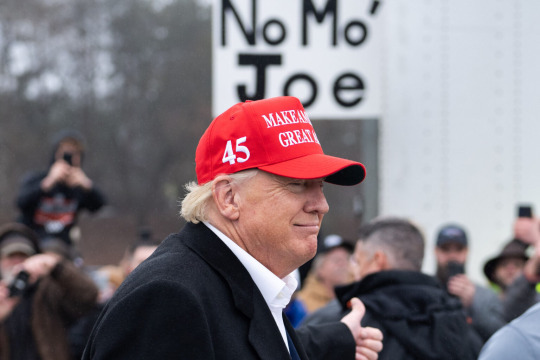
One state prosecutor and one civilian plaintiff have already won huge fines and damages from Donald Trump that may, with legal costs, exceed $500 million.
Trump awaits further civil and criminal liability in three other federal, state, and local indictments.
There are eerie commonalities in all these five court cases involving plaintiff E. Jean Carroll, Manhattan district attorney Alvin Bragg, New York Attorney General Letitia James, federal special counsel Jack Smith, and Fulton County district attorney Fani Willis.
One, they are either unapologetically left-wing or associated with liberal causes. They filed their legal writs in big-city, left-wing America—Atlanta, New York, Washington—where liberal judges and jury pools predominate in a manner not characteristic of the country at large.
Two, they are overtly political. Bragg, James, and Willis have either campaigned for office or raised campaign funds by promising to get or even destroy Donald Trump.
Carroll’s suit was funded by left-wing billionaire Reid Hoffman.
Smith sued to rush his court schedule in hopes of putting Trump on trial before the November election.
Three, there would not be any of these cases had Donald Trump not run for the presidency or not been a conservative.
Carroll’s suit bypassed statute of limitation restrictions by prompting the intervention of a left-wing New York legislator. He passed a special bill, allowing a one-year window to waive the statute of limitations for sexual assault claims from decades past.
Until Trump, no New York prosecutor like James had ever filed a civil suit against a business for allegedly overvaluing real estate assets to obtain loans that bank auditors approved and were paid back in full, on time, and with sizable interest profits to the lending institutions.
Alvin Bragg bootstrapped a Trump private non-disclosure agreement into a federal campaign violation in a desperate effort to find something on Trump.
Smith is also charging Trump with insurrectionary activity. But Trump had never been so charged with insurrection, much less convicted of it.
Willis strained to find a way to criminalize Trump’s complaints about his loss of Georgia in the 2020 national election. She finally came up with a racketeering charge, usually more applicable to mafiosi and drug cartels.
Four, in all these cases, the charges could have been equally applicable to fellow left-wing public figures and officials.
Joe Biden, like Trump, was accused of sexual assault decades earlier by former staffer Tara Reade. Yet Reade was torn apart by the media and the left for inconsistencies in her memory. By contrast, the wildly inconsistent and amnesiac E. Jean Carroll won $83 million from Trump.
Jack Smith created the precedent of charging former president Trump for unlawfully removing classified files to his private residence.
But the government simultaneously did not charge Joe Biden for similar offenses. Yet Biden had removed files not for two years but for more than 30. He stored them not in one location but several.
His rickety garage was a mess, not a secure family compound like Trump’s estate. Moreover, Biden did so while a senator and vice president, without any presidential authority to declassify almost any presidential document he wished.
Biden never came forward to report the crime for over thirty years—until Trump was charged. Indeed, he was caught on tape six years ago, admitting to his ghostwriter that he possessed classified files but never reported it.
Bragg might have noticed that both Hillary Clinton (fined $113,000) and Barack Obama (fined $350,000) broke campaign financing laws. Neither was subject to federal criminal charges by local prosecutors.
An array of left-wing celebrities, politicians, 2004 House Members, former Senator Barbara Boxer (D-CA), and failed Georgia gubernatorial candidate Stacey Abrams have all recently challenged elections. They sought either to delay or redo ballot counting or, on the federal level, to sidetrack electors to ignore popular votes in their respective states.
These lawfare cases are part of other efforts that were highly partisan and without merit. Recall the Trump “Russian collusion” hoax and the “Russian disinformation” laptop farce.
In another first, some blue states are suing to take Trump’s name off the ballot for “insurrection,” a crime for which he has never been charged.
Total up the deaths, damage, and length of the summer 2020 Antifa/BLM riots. Then compare the tally to the one-day January 6 riot.
The former proved far more lethal, long-lasting, and destructive. Yet very few of the 14,000 arrested rioters in 2020 were ever prosecuted, much less convicted.
By contrast, the Biden administration sought to jail hundreds for crimes allegedly committed on January 6, such as “illegal parading.”
We are entering a dangerous era in America.
Ideology and party affiliations increasingly determine guilt and punishment. Opponents are first targeted, and then laws are twisted and redefined to convict them.
The left is waging lawfare with the implicit message to political opponents: either keep quiet or suffer the consequences.
53 notes
·
View notes